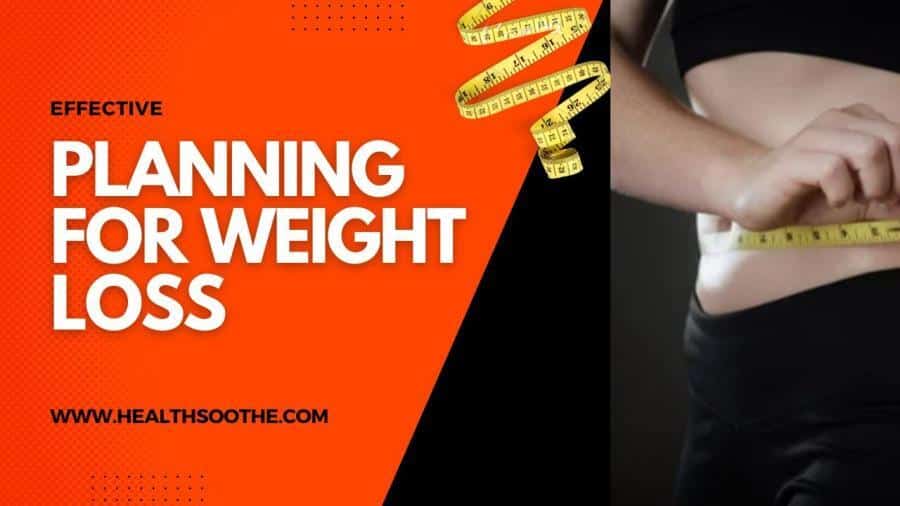The ultimate key to successful weight reduction is proper eating combined with proper physical activity. This balance is extremely difficult for many people to achieve because it involves a marked change in attitudes and behavior patterns that are generally solidly established and of long duration.
Furthermore, Once the changes are made, they will have to endure for a lifetime if the weight that has been lost is not to be regained.
It is therefore important that the reducing diet should be somewhat similar to the person’s usual eating pattern in terms of style and quality.
Ideally, only the calorie content should be changed, and probably the word “dieting” should not be used to describe the process since most people don’t find the idea of permanent dieting congenial.
Similarly, the increased physical activity that must accompany the new eating style should be of a type that the person enjoys. It is virtually impossible for an overweight person to reduce merely by restricting his calorie intake, Or merely by increasing his calorie expenditure. The two must go together.
Cutting Down Step by Step
The first thing to determine when planning to lose weight is the number of pounds that have to go. A realistic goal to set is the loss of about one Pound a week. This may seem too slow, but remember that at this rate, fifty pounds can be lost in a year.
GETTING STARTED:
Start by weighing yourself on arising, and then for two weeks by to eat in your customary manner, but keep a careful record of everything that you eat, the time it is eaten, and the number of calories it contains. During this period, continue to do your usual amount of physical activity.
When the two weeks are over, weight yourself again at the same time of day as before. If you haven’t gained any weight, you are in a basal calorie state. Then check over your food list to see what might be eliminated each day without causing discomfort.
Try to think in terms of eliminating fats and carbohydrates first, because it is essential that you continue to get sufficient vitamins and minerals which are largely found in proteins. Protein should be included in your daily food consumption. If you are in the habit of having an occasional drink, remember that there are calories in alcohol but no nutrients and that most alcoholic beverages stimulate the appetite.
But aside from the nutrients mentioned above, you may consider adding some fat burners to your daily food consumption. These supplements refer to a balanced mixture of extracts, diuretics, and other ingredients designed to break calories inside your body, control appetite, and avoid bad fat. Since fat burners are a popular supplement for a weight loss regimen, many people start looking for the right product that suits their needs. In that regard, some consumers have considered two of the popular brands in the market, Trimtone and Leanbean.
However, if you want to know which one is appropriate for your weight loss journey, it may be best to make a comparison of Trimtone and Leanbean to help you choose the perfect fat burner.
PLANNING MEALS:
When you replan your meals, keep in mind that the items you cut down on must add up to between 300 and 400 calories a day if you are going to lose one pound a week.
Your total daily food intake should be divided among at least three meals a day, more if you wish. If you need to eat more food on a low calorie or to eat more such as cabbage, carrots, celery, cucumber, and cauliflower. ‘All can be eaten raw between meals
There is definitely something to be said in favor of having breakfast every morning, or at least most mornings. This may be psychologically but try to do it, because it will be easier to control your urge to eat too much later in the day.
However, if you need assistance in meal planning, you may consider consulting an experienced dietician in your area. They can provide valuable advice about food and nutrition to help you lose weight and, more importantly, enhance your overall health and well-being.

INCREASING EXERCISE:
At the same time that you begin to cut down on Your food intake, start to increase your daily exercise in whatever way You’re find congenial so that the number of calories eliminated from yours. Diet comes to 500 or more. This is your daily calorie loss compared with your so-called basal calorie state.
ACHIEVING YOUR GOAL:
You may wish to double your daily calorie loss so that you lose two pounds a week. Do not try to lose any more than that unless you are under close medical supervision.
If you gained weight during your two-week experimental period, you will have to increase your daily calorie loss by 500 for every pound gained per week. Thus, if you gained one pound during the two weeks, you will have to step up your daily calorie loss to 750 to lose a pound a week.
You’ll have to keep plugging away to achieve your goal. It will be trying and difficult in many ways. You may get moody and discouraged and be tempted to quit. Don’t. You’ll probably go on Periodic food binges. All this is natural and understandable, so try not to brood about it. Just do the best you can each day. Don’t worry about yesterday, and let tomorrow take care of itself.
In many ways, it can help, and in some cases it’s essential, to have the support and encouragement of family and friends, particularly of those with whom you share meals. You may find it helpful to join a group that has been formed to help its members lose weight and maintain their weight loss. This is good psychological support.
MAINTAINING YOUR WEIGHT LOSS:
Once you have achieved your desired weight, you can test yourself to see what happens if you increase your calorie intake. Clearly, anyone who can lose weight in the manner described can’t stay in a state of negative calorie imbalance indefinitely.
But you will have to be careful, or you’ll become overweight again. Make sure to pay attention to your weight loss program to maintain your ideal weight. Realistically speaking, it’s a challenge, but people who stick to a disciplined program can be rewarded by success.
Special Problems
If you do not succeed in losing weight in spite of carrying out the program described above, you may need professional help because of some special program. A qualified physician may try some special diets, or he may even suggest putting you into a hospital so that he can see to it that you have no calorie food at all for as long as three weeks.
Perhaps the situation is complicated by a metabolic abnormality that can be corrected or helped by medication. Although such conditions are rare, they are not unheard of.
Obesity is almost never caused by a “glandular” problem-which usually means an underactive thyroid. Do not take thyroid pills to reduce unless your thyroid has been found to be underactive on the basis of a specific laboratory test.
The indiscriminate use of pills to reduce, even when prescribed, never helpful in the long run, although it may appear to be at first. The unsupervised use of amphetamines, for example, can be extremely dangerous.
Because so many people are eager to reduce, and because, losing weight isn’t easy, there are many unethical professionals who specialize in the problem. Avoid them. All they are likely to do for you is take your money and make your situation no better and often worse than it was, to begin with. To ensure it will not happen, perform a thorough research of the professionals you want to work with. Gather information about your prospects and consider their years of experience, reputation, and other qualities to ensure they’re trustworthy.
Conclusion
Effective planning for weight loss can be challenging and complicated if you don’t know where to start. Although the process can be challenging, some ways can help make your weight loss journey worthwhile. By keeping the information mentioned above in mind, you can effectively achieve your ideal weight over time. Always remember that losing weight isn’t a one-day process. It requires determination, discipline, and patience to obtain a favorable outcome.

Isreal olabanji a dental assistant and public health professionals and has years of experience in assisting the dentist with all sorts of dental issues.
We regularly post timely and trustworthy medical information and news on Fitness, Dental care, Recipes, Child health, obstetrics, and more.
The content is intended to augment, not replace, information provided by your clinician. It is not intended nor implied to be a substitute for professional medical advice. Reading this information does not create or replace a doctor-patient relationship or consultation. If required, please contact your doctor or other health care provider to assist you to interpret any of this information, or in applying the information to your individual needs.




